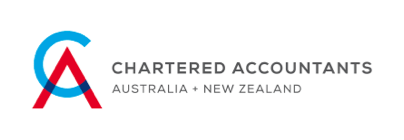In Australia’s financial landscape, trust is everything. Whether you’re managing a not-for-profit, running a real estate agency, overseeing a school’s finances, or operating a strata entity, stakeholders—from donors and investors to regulators and the public—expect financial transparency and accountability. This is where financial statement audits play a critical role.
Richard Allen, Director of Allen Audits & Advisory, explains how getting an independent assessment of an organisation’s financial health helps with credibility, compliance, and confidence among stakeholders.
Why financial statement audits matter
Financial statement audits are not just about compliance—they serve as a vital mechanism to ensure financial accuracy and integrity.
Conducted by independent auditors, these audits verify that an organisation’s financial reports accurately reflect its financial position and adhere to Australian Accounting Standards.
“For trust account holders, such as solicitors and real estate businesses, audits confirm that client funds are managed properly and in compliance with regulatory requirements,” says Richard.
“In the not-for-profit sector, where transparency is paramount, audited financial statements assure donors and funding bodies that their contributions are being used responsibly.
“Similarly, for schools and educational institutions, financial audits help maintain funding eligibility and demonstrate sound financial management to parents, boards, and regulatory bodies.”
Building stakeholder confidence through transparency
Richard says one of the most significant benefits of financial statement audits is the transparency they provide.
“Clear, verified financial information reassures stakeholders that an organisation operates with integrity and is committed to ethical financial practices,” he says.
“In clubs and associations, financial audits ensure that membership fees and sponsorship funds are allocated appropriately, preventing mismanagement and reinforcing trust among members.
“Strata entities, too, benefit from financial audits by assuring property owners and residents that levies are managed correctly and financial reserves are sufficient for long-term maintenance and improvements.”
Better accountability and compliance
Beyond building trust, financial audits are crucial in reinforcing accountability and ensuring compliance with Australian financial regulations.
The Australian Charities and Not-for-profits Commission (ACNC), for example, mandates audits for larger charities to safeguard against financial mismanagement. Similarly, the Australian Securities and Investments Commission (ASIC) sets compliance requirements for Australian Financial Services (AFS) licensees, making audits essential to maintain their licence status.
“For organisations handling trust accounts—such as accountants, conveyancers, and legal firms—financial audits safeguard against the misuse of client funds and help detect potential discrepancies before they become major issues,” says Richard.
“This not only protects clients but also shields the business from reputational damage and legal consequences.”
Sharing financial statements with stakeholders
Organisations often share their financial statement audits with stakeholders to demonstrate transparency, accountability, and sound financial management. The way audits are shared depends on the type of organisation and its stakeholders:
- Not-for-profits and charities – Many charities and not-for-profits publish their audited financial statements on their websites or in annual reports. This reassures donors, grant providers, and regulatory bodies (such as the ACNC) that funds are being managed responsibly.
- Schools and educational institutions – Schools, particularly those receiving government funding, may share financial audit results with governing bodies, parents, or education departments to demonstrate compliance and proper financial stewardship.
- Trust account holders – While trust account audits are usually submitted to regulatory authorities (e.g., state-based consumer affairs bodies or professional associations), businesses may also provide summaries or reports to clients to instill confidence in their financial practices.
- Clubs and associations – Sporting, cultural, and social clubs often share financial audits with their members at annual general meetings (AGMs) to ensure transparency about membership fees and funding allocation.
- Strata entities – Strata committees may present audited financial reports to property owners at annual general meetings to show how levies are being used and ensure financial health.
- AFS licensees – Financial services firms are required to provide audited financial statements to ASIC, and in some cases, to investors or stakeholders, demonstrating compliance and financial stability.
How financial audits drive operational improvements
While audits are often seen as a regulatory necessity, Richard says they are also an opportunity for organisations to refine their financial operations.
“By identifying inefficiencies, detecting financial risks, and highlighting areas for improvement, audits provide valuable insights that can lead to stronger financial strategies and better decision-making,” he says.
“For example, a school undergoing an audit may discover ways to optimise budgeting processes or improve financial reporting systems.
“A strata entity might uncover inefficiencies in expense management that could lead to cost savings for residents.
“Not-for-profits can use audit findings to strengthen internal controls, improving financial governance and making them more attractive to donors and grant providers.”
Choosing the right audit partner
Selecting an experienced and industry-specialist audit firm is crucial to maximising the benefits of financial statement audits.
“At Allen Audit & Advisory, we provide independent financial audits tailored to the unique requirements of Australian organisations, including trust account audits, not-for-profits, clubs and associations, schools, AFS licensees, and strata entities,” says Richard.
“Our expertise ensures compliance, enhances transparency and helps organisations build and maintain the trust of their stakeholders.”
If your organisation requires a financial statement audit, we’re here to help. Contact Allen Audit & Advisory to ensure your financial reports meet the highest standards of accuracy, compliance, and stakeholder confidence.








